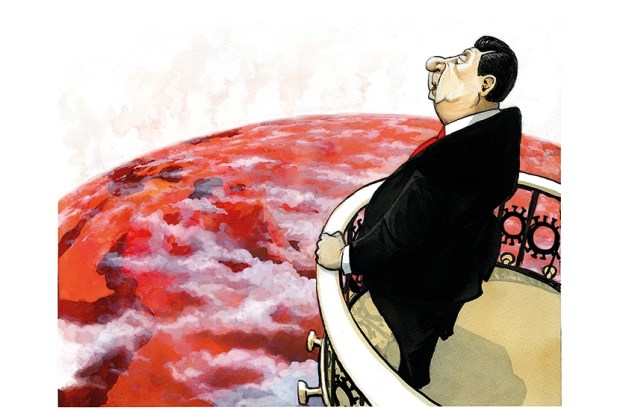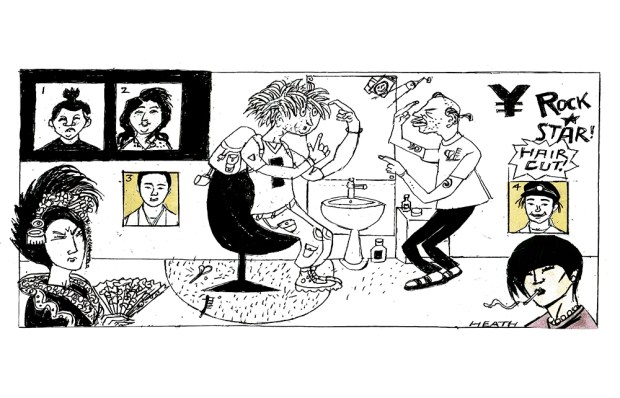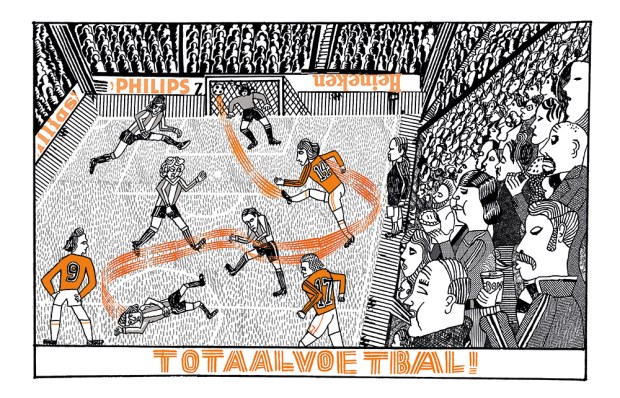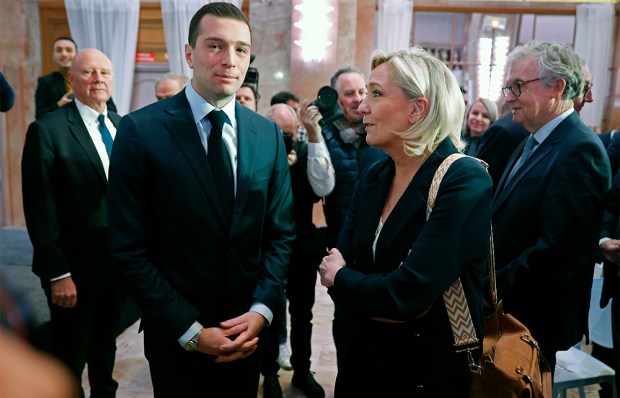When we were hit by Britain’s biggest crisis since the war, some people behaved like heroes, laying their lives down to fight coronavirus. Others made their excuses, put their feet up and had a good long six-month snooze.
My favourite Covid excuse came from Eurostar, which declared in August that, ‘As a result of coronavirus, we are only able to offer wifi in our Standard Premier and Business Premier carriages’. Wireless broadband was duly disabled in its standard-class coaches — until, besieged by complaints, the company conducted a full reverse–ferret operation and turned the wifi back on.
Again and again since the virus struck, companies and institutions, big and small, have pounced on Covid as a wonderful excuse to be lazy — or ruthless.
Take the National Trust. In August, the Trust laid out its proposals for ‘Curation and Experience’. It planned to sack regional lead curators and many junior curators. Scholars in architecture, archaeology, historic gardens, paintings, sculpture, furniture, textiles, silver and libraries would be jettisoned. And the reason for the proposed sackings? What else? Covid-19 and the £200 million loss of income it had inflicted.
But that didn’t stop the Trust pouring money into what it really likes doing nowadays: politicised PR exercises. Last month, it published a gazetteer of all National Trust houses with a slavery connection. In August, Tony Berry, the director of Visitor Experience, published Towards a ten-year vision for places and experiences. Version 2.1, revealing his disastrous plans. Berry wants to ‘dial down’ the Trust’s role as a big cultural institution and marginalise country houses. The Trust also closed beaches and car parks in the early stages of lockdown when open spaces — the safest places during an epidemic — were at a premium for those trapped in small gardenless flats.
Bureaucrats in these organisations are obsessed with rules and process. They don’t understand the notion of calibrated risk: that we should try to minimise risk, not eliminate it. With a currently incurable virus, there is, in any case, no chance of complete risk elimination — and you must consider the effects on the economy and non-coronavirus health problems if you prevent people living their lives because of a flimsy Covid excuse.
During the second phase of lockdown, when I was allowed to travel to my family’s cottage in Wales, I took the train from Paddington to Johnston, Pembrokeshire. The first part of the journey was fine, with a lovely, safely masked Great Western Railway conductor walking along the aisle, helping out with queries, even though he wasn’t allowed to check tickets.
After I changed trains in Cardiff, though, the second conductor wasn’t allowed to leave his cosy cabin, thanks to rules imposed by Transport for Wales. Johnston is a request stop, but it was impossible to make that request. Cue hours of panic, wondering whether I would be able to get off. No announcement was made to say the train would be stopping at Johnston anyway, as turned out to be the case.
Coronavirus provided a marvellous opportunity for some people to indulge in the laziness skewered by the late Kingsley Amis in ‘Sod the Public’, an article published in The Spectator 35 years ago this month. Teaching unions, for example, pulled off a marvellous Sod the Children (and their Parents) exercise, keeping schools closed in the face of evidence of how few children have severe cases, let alone die of it.
The virus is also useful if you’ve got something embarrassing you don’t want to admit. Why bother when you can hide it away and blame the concealment on Covid?
For months, a row has been raging about Westminster Cathedral’s choir — once one of the best on Earth — and the choir school that educates the choristers. Both the cathedral’s music administrator and its master of music resigned because the choir’s activities were scaled down and full boarding abolished, forcing choristers who live too far away to commute into leaving the school. A report on the whole disaster was due to be published in April but didn’t appear until late last month. The reason for the delay? You guessed it: Covid-19.
Writing reports should be one of the few things you can safely do in lockdown. But that’s the magic of the Covid excuse. Because the virus can be lethal, and because it’s dominating everyone’s minds, just say the word ‘Covid’ and people have to accept your excuse, however flimsy.
And if you don’t accept a Covid excuse? Well, sod you!
Got something to add? Join the discussion and comment below.
Get 10 issues for just $10
Subscribe to The Spectator Australia today for the next 10 magazine issues, plus full online access, for just $10.
You might disagree with half of it, but you’ll enjoy reading all of it. Try your first month for free, then just $2 a week for the remainder of your first year.














Comments
Don't miss out
Join the conversation with other Spectator Australia readers. Subscribe to leave a comment.
SUBSCRIBEAlready a subscriber? Log in